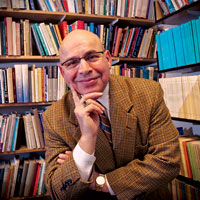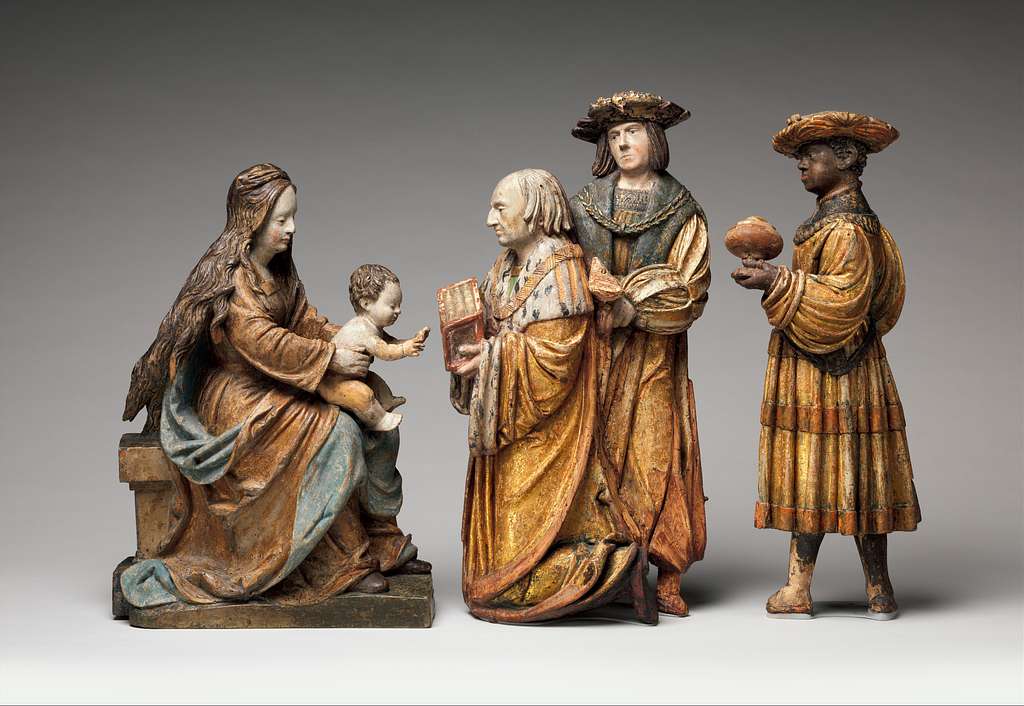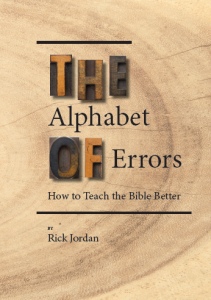I have just completed reading Barbara Brown Taylor’s memoir as a teacher of world religions, Holy Envy: Finding God in the Faith of Others. It was a great read – insightful, profound, and humorous. Barbara’s “holy envy” comes as she recognizes in others’ religions things that are missing in her own as a Christian believer and minister.
Since my website and blog focus on the Bible and teaching the Bible, I want to share some excepts from Holy Envy about those topics.
We’d like you to speak, but…
Barbara received an invitation to speak for a baccalaureate. The invitation advised that there would be people of multiple faiths in the audience and on the platform, so “We hope you will speak from your own religious tradition while avoiding exclusive or triumphal language.”
Once she got the invitation, Barbara became more sensitive. She became increasingly aware that exclusive and triumphal language saturates our hymns and our interpretation of the Bible.

“The purpose for staying on the lookout for languages like these is to prevent them from becoming uncontested parts of the Christian worldview. Every time I ran into one of these hard enough to hurt, I had to turn around and look in the opposite direction, where there is almost always a counternarrative in scripture just waiting for someone to notice it. When I run into a hard corner of Christian thinking about the subordination of women, I remember that the angel Gabriel did not ask Mary’s father if it would be all right for her to bear a son out of wedlock: Gabriel asked her. When I am walloped by Christian condensation toward those who are not Christian, I remember how many religious strangers played lead roles in Jesus’s life: the Canaanite woman who expanded his sense of agency, the Samaritan leper who showed him what true gratitude looked like, the Roman centurion in whom he saw more faith than he had seen in his own tribe.”1
We’re #1 !!!
But wait! Isn’t the Christian faith the best and rightest faith? Aren’t our beliefs, rituals, and traditions better than any other religious groups’? Isn’t our Holy Bible the only Word of God?
This reminds me of the insights shared by Frank Spina in his book, The Faith of the Outsider: Exclusion and Inclusion in the Biblical Story. (My video interview with Frank was uploaded last week at greatbibleteachers.com/interviews.) Frank notes that the “meta-story” of the Old Testament includes the idea of the Jews as God’s chosen people. “Chosen” definitely has an exclusive feel to it.

Frank writes, “This unique election on God’s part clearly gives heavy accent to the notion of exclusivity. And that may be a difficult idea to swallow in an era that promotes inclusivity, multiculturalism, and the willing acceptance of religious diversity as supreme values, not to mention as requisite for enlightened social, political, or religious outlook. Whether we like it or not, however, those who put religious stock in the biblical tradition cannot get around the prominence of the exclusivity theme in the Old Testament. After all, this is no minor development: rather, it is a central and unambiguous feature of the metastory in which God selects one and only one people to accomplish the goal of blessing and reconciling the whole world. (Genesis 12:1-3.)”2
Chosen, yes! But, why?
The Jews were chosen, exclusively, to be bearers of blessings for all people. This is only by the grace of God, however, not because Abram and Sarai were particularly wonderful, faith-filled people. Indeed, they doubted that God could do what God said. They laughed in God’s face! Yet God was faithful to them and to the promise.
After itemizing the faith failures of Jacob, Joseph’s brothers, the freed slaves in the wilderness, the faithlessness during the time of the judges, and the disobedience during the reign of kings, Frank notes, “Had God been looking for a ‘good’ people to select for blessing the world, then God made a singularly poor choice!…It remains a mystery why Israel is portrayed in the Bible in such stupendously unflattering ways. If someone were going to invent a story designed to make a people look good and therefore deserving of divine election, the result would never have been the Old Testament depiction of Israel.”3

It is often said, “how odd of God to choose the Jews.” Spina insists that the “oddness” relates not to the people group called the Jews, but to the characteristics of God’s sovereignty and grace. The Jews were chosen because God wanted to choose them. That’s all we know and , apparently, all we need to know.
Jesus, insiders, and outsiders
When Jesus called people to follow him, he began with his own people, the Jews. Later, Gentiles (non-Jews) began to follow Jesus, as well. The early church, as we discover from reading Acts and the epistles, struggled with this insider/outsider debate.
“In short,” Frank says, “the New Testament presents us with an intramural debate. The nub of that debate has to do with the makeup and purpose of God’s insider community, Israel….This is not a subpoint or a minor motif; it is key to the whole biblical witness….God had a reason for exclusively electing Israel and, so Christians believe, continuing the Israelite purpose and mission in Jesus the Christ.”3

And, yet, surprise! We have story after story of God using “outsiders.” Often, as Barbara points out above, the outsiders have more faith and end up looking better in the text than the “insiders.” They even nurture the faith of the ultimate insider, Jesus of Nazareth. It is the same “old, old story.” Frank’s book gives a chapter’s worth of examination to six Old Testament characters and one New Testament character who are outsiders – Esau, Tamar, Rahab, Naaman, Jonah, Ruth, and the woman at the well.

Barbara developed a sensitivity to strangers in the scriptures. “In particular, I looked for stories that supported Christian engagement with religious strangers – not as potential converts but as agents of the God who transcends religion and never met a stranger. Beginning with the Persian magi in Matthew’s gospel and ending with the Roman centurion who recognizes Jesus as the Son of God, the Gospels are full of such characters – people who come from beyond the tribe to bless the tribe then return to where they came from.”4
Will your class members hear this?
This can be a struggle for our Bible study class members. It may be that one reason we go to church and to Bible study is to receive affirmation that our religion is superior to all others, that our doctrines are the correct ones, that our interpretation is unapologetically better than other’s interpretation.
Yet, if we are teaching the “whole gospel” we must include the truth that God loves and works through people outside our camp. God loves and works through persons in the “other” political party. God loves and works through Roman Catholics, Eastern Orthodox, and Protestants – and Christians who are not in any of those categories. God loves and works through people who do not call themselves Christians. That’s gospel. That’s Bible. That’s uncomfortable. But if God did not want us to believe this, God would not have allowed so many “outsider” stories to be in the canon of scripture, right?
- Barbara Brown Taylor, Holy Envy: Finding God in the Faith of Others (New York: HarperOne, 2019), 105. [↩]
- Frank Anthony Spina, The Faith of the Outsider: Exclusion and Inclusion in the Biblical Story (Grand Rapids: William B. Eerdmans, 2005), 2. [↩]
- Spina, 7. [↩] [↩]
- Taylor, 108 [↩]

